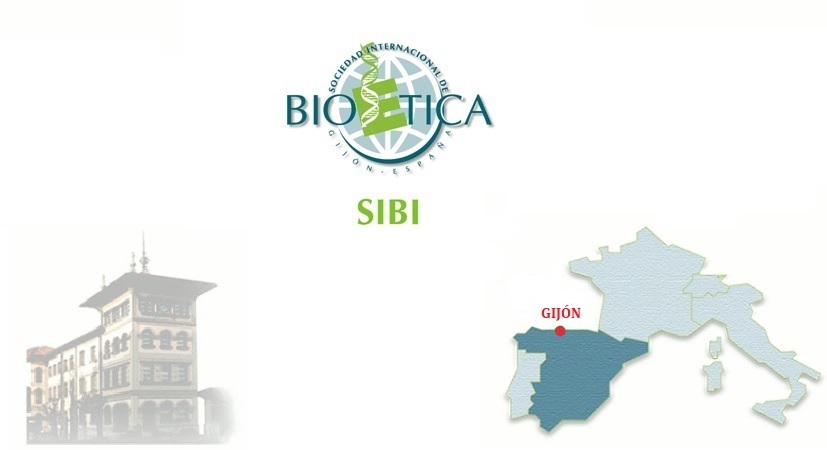
Gijón (Spain) May 13 – 15, 2024 Congress Palace. Asturias Fairgrounds Luis Adaro
“CRISPR Gene Editing. Bioethical and Legal Aspects”
SPEAKERS
1-Lluís Montoliu (SPAIN)
Scientific Researcher of the CSIC. Vice Director National Center of Biotechnology CNB. Member of the SIBI Scientific Committee.
«The current Universe of CRISPR tools: applications and challenges»
2-Hervé Chneiweiss (FRANCE)
Research Director of the CNRS. Department of Neurosciences Sorbonne University. President of the Inserm Ethics Committee.
«Editing the human genome: from ethical issues to the governance model»
3-Natalia López Moratalla (SPAIN)
Professor of Biochemistry and Molecular Biology at the University of Navarra. Member of the Bioethics Committee of Spain. Member of the SIBI Scientific Committee
«What the Genetic Editing Technique cannot modify in men»
4-Vitulia Ivonne (ITALY)
Professor Civil Law University of Salerno. Member of the SIBI Scientific Committee
«Advanced therapies and intellectual property: European standards and Italy’s position»
5-Carlos Romeo Casabona (SPAIN)
Emeritus Professor of Criminal Law, University of the Basque Country. Law and Human Genome Research Group. Member of the SIBI Scientific Committee
«The Opinion of the European Group on Ethics of Science and Technological Innovation Ethics of Genome Editing (EGE) of the European Commission».
6-Ewa Bartnik (POLAND)
Professor at Warszawski University
“ Humans 2.0: Hope or Threat»
7-Paula Martihno da Silva. (PORTUGAL) Virtual
Former President National Council of Ethics for Life Sciences. Lisbon. Member of the SIBI Scientific Committee
«The responsibility of researchers».
8-Secondary Education Students (SPAIN)
Secondary Education Students and Teachers of Asturias. CPR Coordination
«Genetic Editing. CRISPR Bioethical and Legal Aspects”
La Salle La Felguera «A melon is open»
IES Real Instituto Jovellanos de Gijón «CRISPR: From curing cancer to designing babies. Ethical limits»
Liceo School La Corolla «Crop genome editing and ecosystem balance. A lot to think about»
9-José Manuel Silvero A. (PARAGUAY)
Bioethicist. Professor National University of Asunción
«The Lulú and Nana case. Bioethical reflections on human improvement»
10-Francoise Baylis (CANADA)
CM ONS, PhD, FRSC, FISC. Distinguished Research Professor Emerita Dalhousie University
«Editing the human genome: To infinity and beyond (…)»
11-Mª Pilar Nicolás Jiménez (SPAIN)
Graduate and PhD in Law. Research Group Chair of Law and Human Genome. University of the Basque Country/EHU
«Interventions in the human genome: requirements for approval of research and clinical application of the technique»
12-Amos Shapira (ISRAEL)
Professor of Law and Biomedical Ethics. Member of the SIBI Scientific Committee
« A personal note and a general observation on the promises and pitfalls of biomedical and legal Regulation of scientific breakthroughs»
13-Laurence Azoux-Bacrie (FRANCE)
Lawyer. PhD in Bioethics Mediator. Lawyer of the Court of Paris. Member of the SIBI Scientific Committee
«Genome editing: technological dazzle, unlimited perspectives, what are the risks? What disciplines?»
14-Svitlana Pustovit (UKRAINE)
President of the Ukrainian Bioethics Association. Member of the SIBI Scientific Committee
«The precautionary principle and other ethical arguments on invasive genetic technologies, as well as modern health concepts»
15- Mª do Ceu Patrão Neves (PORTUGAL)
President of the National Council of Ethics for Life Sciences
«Human genome editing: Who benefits what?»
16- Jennifer Merchant (FRANCE)
Professor of Comparative Public Policies on Bioethical Issues at the University Institute of France
«Public engagement and editing of the hereditary human genome»
17- Alta Charo (USA)
Emerita Professor of Law and Bioethics. University of Wisconsin-Madison
« Harnessing the global potential of genome editing»
18- Fatima Zhora El-Kebir (ALGERIA)
Emerita Professor of Law and Bioethics. University of Wisconsin-Madison
«Ethical aspects of CRISPR-Cas9»
19- Rosalba Durán (COLOMBIA)
Doctor in Philosophy. University of Barcelona. Master in Bioethics
«Some ethical and legal dilemmas about CRISPR gene editing. Reflections on the precautionary principle»
